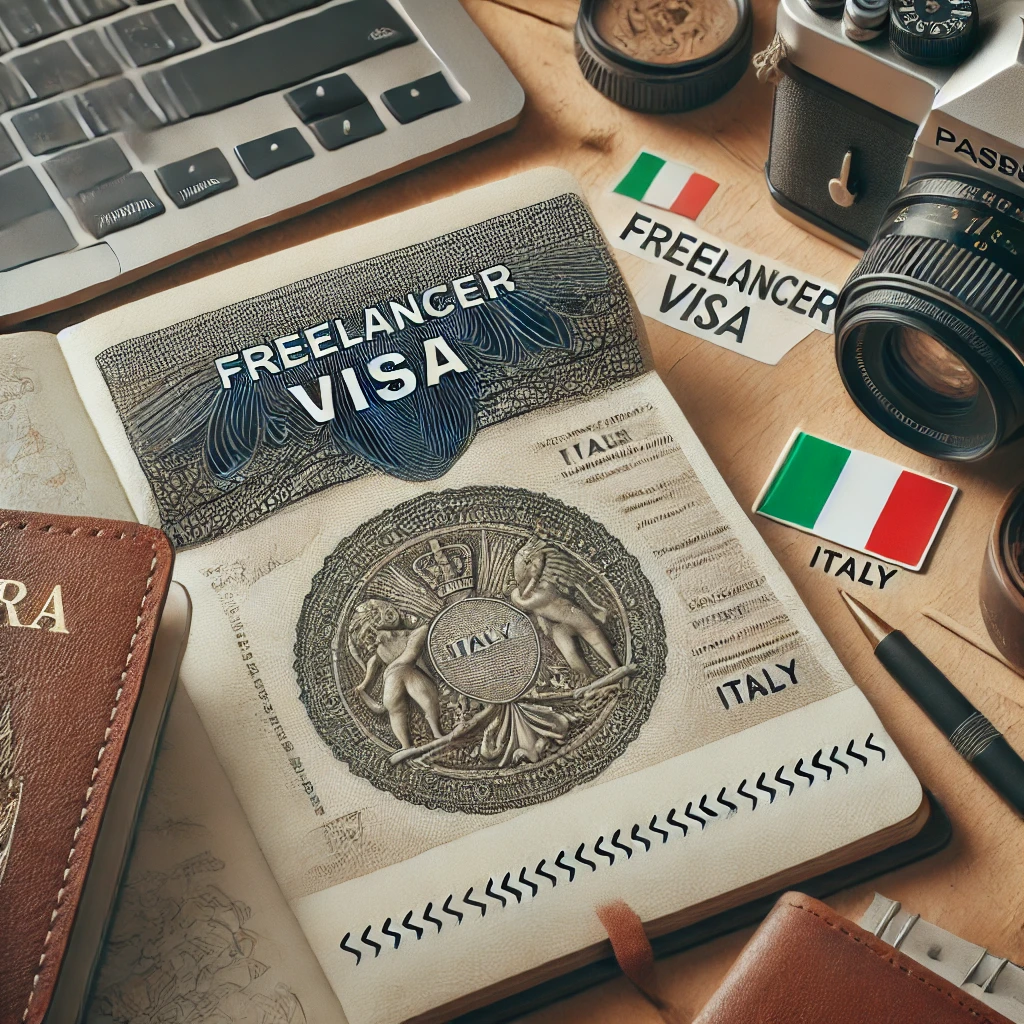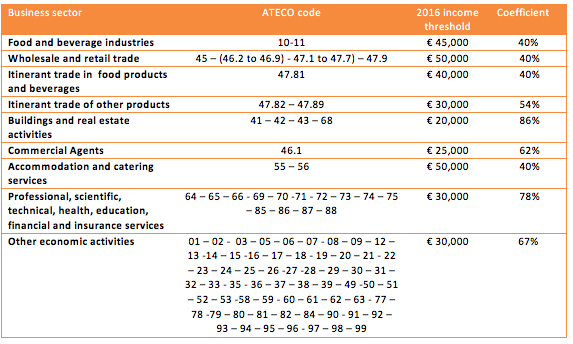Getting a freelancer Visa in Italy
Italy, with its rich culture, vibrant cities, and breathtaking landscapes, has become an increasingly attractive destination for freelancers worldwide. About 10% of Italy’s workforce is now made up of freelancers, with many foreigners joining in. While the lifestyle is appealing, it’s important to be aware of Italy’s unique legal and administrative rules for freelancing. This guide aims to demystify these complexities and offer a comprehensive roadmap to thriving as a freelancer in Italy, including insights into obtaining a freelancer visa in Italy.
Who is Eligible to Freelance in Italy?
In short, Italy welcomes both EU and non-EU citizens to work as freelancers, though eligibility requirements vary. Let’s break it down:
| Eligibility Criteria | EU Citizens | Non-EU Citizens |
| Freedom of Movement within the EU | ✅ | ❌ |
| Work Visa Required | ❌ | ✅ (Self-employment visa or other relevant categories like Startup Visa) |
| Residency Registration | ✅ (if staying longer than 3 months) | ✅ (Required after obtaining the visa) |
| Professional Qualifications | Not strictly required, but beneficial | Often required, depending on the specific freelance field and visa category |
| Financial Resources | Not strictly required, but advisable | Usually required to demonstrate self-sufficiency and ability to support the business venture |
| Business Plan | Not mandatory, but can strengthen applications | Often required to demonstrate the viability and potential impact of freelance activities |
| Clean Criminal Record and Good Health | ✅ | ✅ |


How to obtain a work visa in Italy as a freelancer?
The Italian freelancing visa is a self-employment visa that allows non-EU citizens to live and work independently in Italy. The process involves several stages:
Step 1: Securing the “Nulla Osta” (Clearance to Work)
Your first step toward getting your Nulla Osta. It is a certificate of no impediment given to non-EU citizens. To have your certificate issued you have to apply for it at the “Sportello Unico per l’Immigrazione” (Immigration Desk) of the Italian embassy or consulate in your native country. The application form usually includes a detailed business plan explaining your freelance operations, verification of qualifications, financial means, health insurance, and a clean criminal background.
Step 2: Visa Application
Once the “nulla osta” is issued, you can apply for the appropriate visa at the Italian consulate. The type of visa you receive will be determined by your specific circumstances, such as the nature of your freelance job and the length of your intended stay. Common options include the Italian self-employment visa and, for innovative enterprises, the Startup Visa.
Step 3: Registering for Residency Upon Arrival in Italy
Finally, within 8 days of arriving in Italy, you must apply for a legal residency in Italy that is a residence permit (“permesso di soggiorno”) at the local police headquarters (“questura”). This process entails submitting your valid passport, visa, proof of residence, and any other necessary documents.
Italian Legal Structures for Freelancers
Italy offers various legal structures to suit different freelancing needs. Let’s explore the most common options as well as their key benefits and drawbacks:
| Legal Structure | Pros | Cons | Suitable For |
| Ditta Individuale (Sole Proprietorship) | Easy & inexpensive setup, minimal bureaucracy, full control, all profits to the owner | Unlimited personal liability, potentially higher taxes, less credibility with some clients | Independent freelancers with low overhead, preferring simplicity |
| Libero Professionista (Professional Freelancer) | Higher credibility, potential tax benefits, access to professional networks & resources | Complex registration, strict regulations, potentially higher social security contributions | Highly qualified professionals offering specialized services, valuing recognition |
| Società a Responsabilità Limitata Semplificata (SRLS) | Limited liability, separate legal entity, potential for raising capital | More formalities and costs to set up and maintain require minimum share capital | Freelancers with higher income, seeking limited liability and investment opportunities |
| Società in Nome Collettivo (SNC) (General Partnership) | Shared responsibility and resources, easier access to credit | Unlimited liability for all partners | Freelancers collaborating on projects, sharing costs and responsibilities |
Registering as a Freelancer in Italy
Once you’ve chosen the right legal structure for your freelance business in Italy, it’s time to make it official through registration. Let’s get through two main steps:
- Open a Partita IVA (Tax Identification Number):
This is the first and most critical step for any freelancer in Italy. It is a unique 11-digit code used for tax and invoicing purposes. You can apply online via the Agenzia delle Entrate website (the Italian Revenue Agency) or through a commercialista. You’ll need to provide personal information, your preferred legal structure, and details on your freelance employment.
- Registering with INPS (National Social Security Institute)
INPS administers freelancers’ social security and pension contributions. Registration is required, and you must select the appropriate category for your occupation (“gestione separata” for most freelancers). Contributions are calculated using your income, and you are responsible for making regular payments.
Finally, depending on your specifications, you may need additional registrations (if applicable):
- Chamber of Commerce (“Camera di Commercio”): If you’re engaged in commercial activities you get a certificate of action issued by the Chamber of Commerce.
- Professional Associations (“Albi Professionali”): Mandatory for regulated professions like lawyers, doctors, or architects.
Tax Obligations for Italian Freelancers
Italian freelancer taxes can seem complex, but here’s a simplified overview:
| Tax Type | Eligibility |
| IRPEF (Income Tax) | Progressive rates range from 23% to 43% depending on income. |
| IVA (VAT) | 22% on most goods and services, but register and charge only if your turnover exceeds €40,000 (€70,000 for services). |
| IRAP (Regional Tax) | Varies by region and activity, usually a percentage of net income. |
| INPS (Social Security) | Mandatory contributions for pensions, sickness, and maternity.Regime Forfettario: Simplified tax scheme with a flat rate (5% for the first 5 years, then 15%) for those meeting specific requirements (e.g., income under €65,000). |
Do I pay social security as a freelancer?
Freelancers in Italy must pay into the National Institute for Social Security (INPS), which administers social security and pension payments. Contributions are computed based on income, and they guarantee future pension entitlements and social security benefits.
Does Italy provide health insurance for freelancers?
The National Health Service (SSN) provides freelancers with health insurance coverage and access to public healthcare services. Furthermore, freelancers may pick private health insurance for additional coverage, which provides more extensive or specialized medical care options.
Can I freelance as a second job?
Sure. For those already employed, freelancing as a second job in Italy is permitted, but it comes with specific regulations First, you must ensure that your freelance work does not conflict with their primary employment terms and report any additional income to tax authorities. Income limitations are minimal but you have to declare all the earnings.
Wrapping Up
Whether you’re an EU or non-EU citizen, understanding the Italian freelancer visa process, choosing the appropriate legal structure, and managing your tax and social security obligations are crucial for success. With careful planning and adherence to the regulations, you can thrive as a freelancer in Italy, enjoying both the professional opportunities and the vibrant lifestyle the country offers.
Would you like to learn more about similar topics? Then check our related articles here: Freelancer right in Italy, Unlocking Italy: The Digital Nomad Visa Explained and Freelancing in Italy: Pros & Cons in 2024






